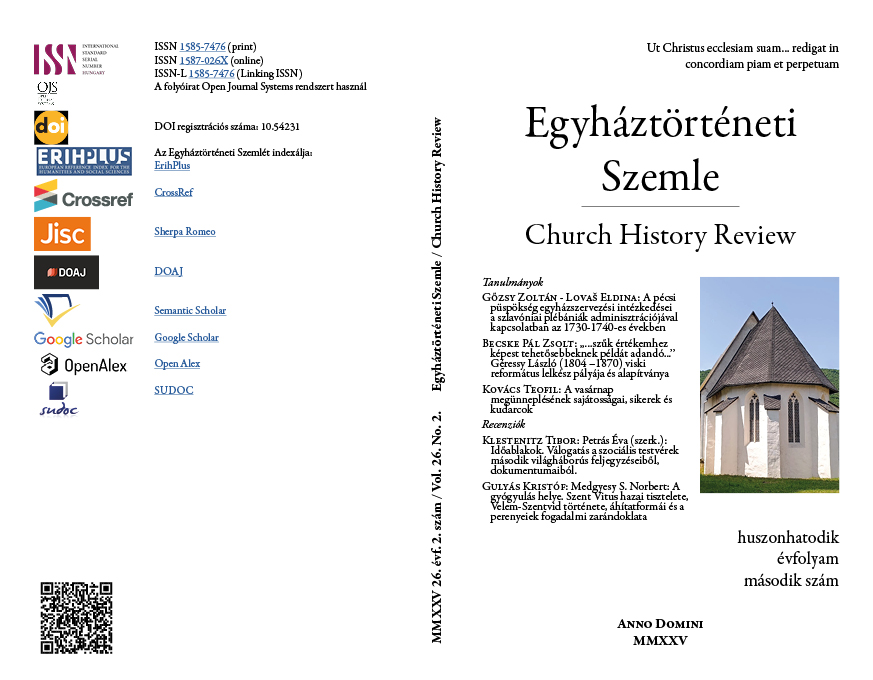The Observance of Sunday: Specific Features, Successes, and Failures
DOI:
https://doi.org/10.54231/ETSZEMLE.26.2025.2.3Keywords:
Evangelical Protestant Newspaper, Ferenc Balogh, public holiday, Sunday sanctificationAbstract
Across different periods, countries, and social groups, the observance of Sunday has taken on varying roles. The changes of the nineteenth century–particularly those brought about by the Industrial Revolution–prompted societies to reassess their practices. Traditional customs related to Sunday gradually transformed. Both religious and secular institutions responded to these changes: the former objected to daily labor on doctrinal grounds, while the latter were concerned with protecting workers’ rights. The movement to sanctify Sunday gained momentum not only in Europe but also in America. In Hungary, the Reformed professor Ferenc Balogh of Debrecen became a prominent advocate of the cause. In the Evangyéliomi Protestáns Lap (1875–1878), which he edited, he regularly reported on domestic and international developments concerning Sunday observance. Drawing on this publication, the present study examines denominational and regional differences in attitudes toward Sunday, as well as the successes and failures associated with efforts to sanctify the seventh day.
Downloads
Downloads
Published
Conference Proceedings Volume
Section
Categories
License
Copyright (c) 2025 Teofil Kovács (Autor)

This work is licensed under a Creative Commons Attribution 4.0 International License.
The author(s) reserve the copyright of their work.
The Church History Review does not restrict the rights of authors to place their manuscripts or manuscript versions on preprint servers or other hosting. This applies generally to the following formats.
- Submitted version
- Accepted version (manuscript accepted by the author)
- Published version (Version of Record)









